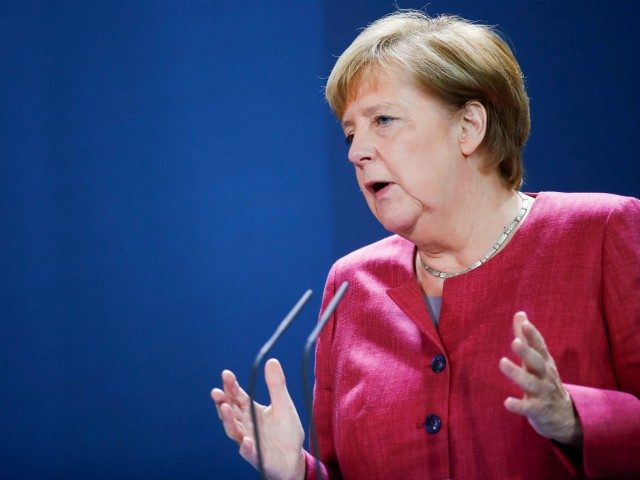German Chancellor Angela Merkel said that the European Union must accept the “reality” than a UK-EU trade deal must be beneficial to the United Kingdom as well as the bloc.

Dr Merkel, who currently holds the rotating Presidency of the Council of the European Union, told a meeting of European mayors on Tuesday that “we have to prepare for the event that there will be no agreement”.
“We also have to take into account the reality; an agreement has to be in the interests of both parties, in British interests as well as the interests of the 27 member European Union,” the council president said, according to The Telegraph.
The UK officially left the EU on January 31st, 2020, but remains tied to Brussels rules in a transition period which expires on New Year’s Eve. If a deal is not struck and signed in time for the end of the deadline, the UK will leave the bloc’s institutions and trade with it on World Trade Organization (WTO) terms.
So far, the EU and its negotiator, Michel Barnier, have refused to soften on London’s red lines, such as regaining full control of the UK’s waters, regulations, and laws. Some European leaders have said that they will resist any deal unless current fishing rights are retained, and the UK agrees to restrict itself by abiding by ‘level playing field’ rules.
However, for a deal to be struck, it needs to be mutually beneficial. The UK has already demonstrated that it is capable of signing such deals with third nations, after agreeing in principle early last month a free trade agreement with Japan that is due to be signed next week.
Last week, Prime Minister Boris Johnson and Ukrainian President Volodymyr Zelenskyy signed a Political, Free Trade, and Strategic Partnership Agreement between their countries which aims “to strengthen UK cooperation in political, security and foreign matters with Ukraine, while also securing continued preferential trade for businesses and consumers” — essentially, a continuation of the EU-Ukraine Association Agreement.
The German leader’s approach is in stark difference to that of France, which has vowed to show “no weakness” in negotiations, particularly in relation to fishing rights. Under the Common Fisheries Policy, the EU can plunder more than 60 per cent of the fish landed in the UK’s territorial waters, with the French, for example, free to catch more than 90 per cent of English Channel cod.
However, Mrs Merkel’s tone also conflicts with statements just from Tuesday from Germany’s own Europe minister. Michael Roth said that EU members “expect substantial progress by our friends in the United Kingdom in key areas: in particular on governance, ‘level playing field’ and fisheries” — suggesting it should be Britain making all the compromises, not the EU.
Mr Roth has been clear that the EU should prepare for the UK’s WTO exit. Likewise, Mrs Merkel has been consistent since the summer that both her country and the EU should prepare for the possibility of a no-deal scenario.
While Prime Minister Johnson had made Thursday the deadline for either agreeing on a deal or deciding to walk away from negotiations and preparing for WTO, reports circulated on Wednesday that the prime minister was already preparing to extend that internal deadline further, after already reneging on a similar deadline he had set for June.
Earlier this week, Mr Barnier expressed what may be a generally felt assumption in Europe — that Johnson does not stick by his deadlines and may be a soft touch — saying: “It is the third unilateral deadline that Johnson has imposed without agreement… We still have time.”
One government source told The Times that Brussels is using the “old playbook” of “running down the clock” to put pressure on the UK.
The Telegraph reports, however, that Mr Johnson told ministers he still believes a deal can be struck by tomorrow, but said that there should be “no fear” over a no-deal Brexit.